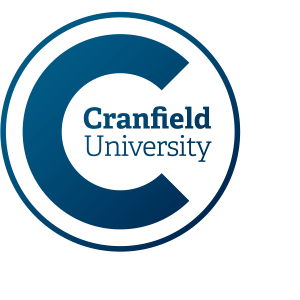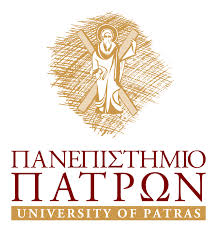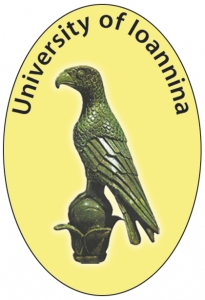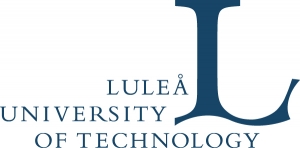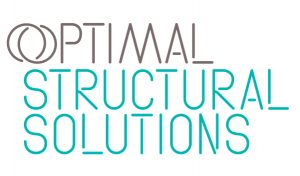Cranfield University
Cranfield University is European premier research-intensive university and is renowned worldwide for leading the way in modern education and industrially oriented research. Cranfield is recognised as an academic institution that combines the very best people with state-of-the-art facilities with over 10% of the UK’s engineering and sciences PhDs being awarded by Cranfield. In addition, Cranfield’s partners include more than 100 European institutions. The School of Aerospace, Transport and Manufacturing is dedicated to carrying out focused fundamental research and applying it to meet the needs of society and industry.
The Aerospace Integration Research Centre (AIRC) and the Centre for Autonomous and Cyberphysical Systems are involved in the CompInnova project. AIRC fosters collaboration between industry and academia and provides capabilities comparable with the leading aerospace facilities across Europe and the World. One of the AIRC’s unique features is its focus on integration, where new aerospace technologies are rapidly developed and tested for current and future aircraft and airspace concepts. In the centres, there are laboratories dedicated to aerial autonomous vehicles, aeroelasticity and engineering photonics. The 1500 m2 Open Space laboratory enables research on full-scale aircraft and components, and currently includes a production standard A320-wing for research and validation of automated assembly techniques being developed in the Centre. The project is coordinated by Prof Iain Gray (Director of Aerospace theme at Cranfield). For further information about the AIRC activities please contact Prof Iain Gray (i.gray@cranfield.ac.uk) or Dr Luca Zanotti Fragonara (l.zanottifragonara@cranfield.ac.uk)
Universisty of Patras – Greece
Applied Mechanics Laboratory, University of Patras (AML/UoP) is in operation since 1980. It is part of the Department of Mechanical Engineering and Aeronautics, University of Patras (UP). AML/UP deals mainly with the general field of MATERIALS & STRUCTURES giving emphasis in the science, the technology and the applications of composite materials (organic, ceramic and metal matrix), monolithic ceramics and plastics. Research is conducted in a variety of areas including:
• Design and optimisation of composite structures, Fatigue Design and Damage Tolerance Approach
• Finite Elements Techniques (Implicit and Explicit), high-strain rate phenomena,
• Fatigue and Damage behaviour of Composite Laminates, Continuum Damage Approach,
• Non-destructive Techniques in advanced materials Ultrasonic, Spectral analysis, Acoustic Emission,
• Diagnostic/prognostic of rotating machinery
• Vibration analysis and Damping control
• Ageing Systems and Health monitoring of Engineering Systems, Safety Management of Composite structures
• Repair of Metal and composite structures using composite patches Experimental stress analysis,
• Smart Materials and Structures/Sensors and actuators technology
Educational activities include eighteen formal courses offered at undergraduate and graduate level dealing with the mechanics, analysis and design of composite materials and advanced structures, non-destructive techniques, wave propagation and scattering theory, anisotropic elasticity, etc. Qualified graduates may enrol in the PhD four-year program also offered by the Laboratory. AML is internationally recognized for its contribution in the respective fields through books, lectures, research papers, conferences, professional society activities and research co-operation within the frame of financially supported projects, both by national and international Institutions, mainly by the EU. UP/AML has in its permanent staff 5 university professors and 3 PhD holders (working in the field of Composite Material, Structural Dynamics, Non-Destructive Testing and Numerical Methods) and 4 technicians and support staff. Currently, 23 Engineers and PhD students are working in the Lab. (3 females) in various R&D projects. As part of its continued growth, UP/AML is continually looking for exceptional people to join its staff. During the last 10 years 15 PhD theses have been completed in the general field of Mechanics of Composite Materials and the Non-Destructive Inspection of Materials and Structures.
University of Ioannina – Greece
The Materials, Smart Sensors and Non-destructive Evaluation (MSS-NDE) Laboratory of the Department of Materials Science and Engineering, University of Ioannina was established in 2005 and has a true interdisciplinary character. Research interests of the MSS-NDE Lab include cement-based materials, composites, multi-functional and smart materials, and nano-structured materials. MSS-NDE Lab has managed over 1.000.000 euros budget coming from research and industrial projects in the last 5 years in the area of non-destructive evaluation and characterization of advanced materials.
Lulea Tekniska Universitet – Sweden
Luleå University Technology (LTU) has a significant experience in conducting high value research and undertaking European and National R&D&I projects. Moreover, LTU has been involved in large European and National Industrial projects of high TRL levels with Volvo, LKAB, SAAB, SSC, ERICSSON and almost all the major Swedish process industries.
LTU will participate in the Compinnova proposal with the Robotics Group lead by Prof. George Nikolakopoulos at the Control Engineering Division at the Department of Computer Science, Space and Electrical Engineering in Luleå, Sweden. The robotics group is focusing in aerial, ground and bio-inspired robotic applications and is currently leading several grands in a European and National level, while in the 2014 has established one of the biggest motion capturing outdoor labs in Europe. For further information on the robotic activities please contact
Prof. Nikolakopoulos (geonik@ltu.se)
Optimal Structural Solutions
Optimal Structural Solutions is a SME based in Cascais, Portugal focused on the development and manufacturing of advanced composite structures. Its core market is the aeronautical one, where we make 50-60% of our turnover. In its 8000 m2 bespoke facility, OPTIMAL has fully integrated 3 main areas, Engineering, Composites and Tooling.
Within our engineering team, we have capacities in materials qualification and components testing, design (CAD), stress analysis (FEA) and CFD. This allows us to support projects from the preliminary studies and material selection till final certification documentation, through stress analysis and optimization, covering the following technologies: autoclave (pre-preg), infusion and hot press. In its tooling unit, OPTIMAL has the capability to produce metal tools up to 12 m in size, and large assembly fixtures.
Optimal is currently developing a capacity in composite components production, nowadays we already produce test coupons for the aeronautical industry and research projects. For other industries Optimal has an extensive track record in prototype, or small series, composite components manufacture.
Besides our capacities in Cascais-Portugal, Optimal also has a machine shop in Marinha Grande, Portugal, and a company in Oxford, UK, focused on the manufacturing of composite patterns and trimming for the automotive industry.
Optimal’s customer base is supported on OEMs and Tier1-2 suppliers, providing solutions in Engineering, Tooling and Components.
Optimal is ISO9001 certified across its business activities and EN9100 certified in one specific process, composite components trimming.
For two years now Optimal has been investing in the development of processes for high volume composite components and NDT technologies. This is driven by market and customers, with the clear objective of cost reduction of advanced composite components. Thermoset and thermoplastic based processes have/are being developed.

